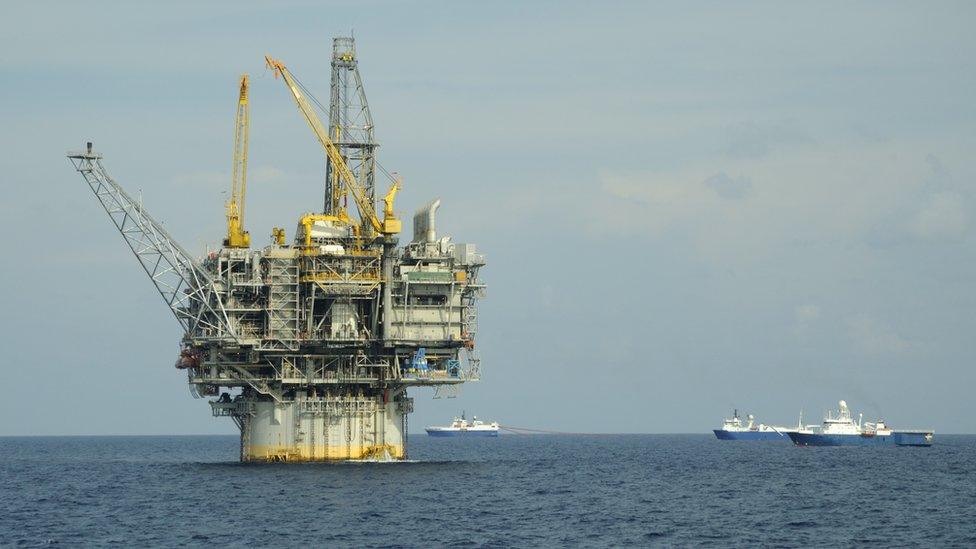Oil and gas: Measuring the importance of Wales' reserves
- Published
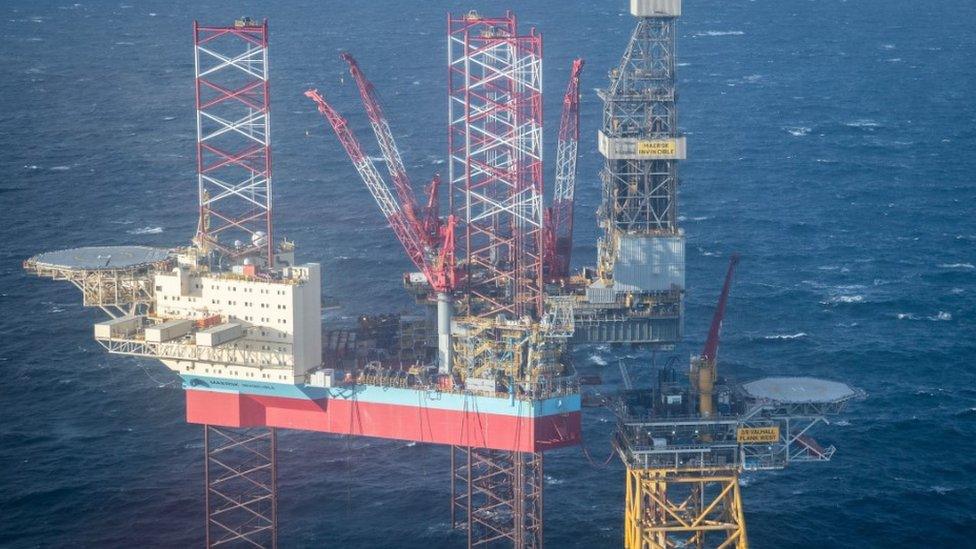
Oil and gas were important arguments in the Scottish independence referendum but Wales' offshore reserves could have a different value
Wales' oil and gas fields may have "meagre" reserves but they could be important for generating other types of energy, an expert has said.
Marine and petroleum geologist Tiago Alves believes they could be used for wind turbines, geothermal energy (from the seabed) or even to dispose of factory emissions.
Wales has oil and gas at the Douglas Fields off Rhyl and maybe Cardigan Bay.
Dr Alves said these sites could also help firms cut their carbon footprints.
"Oil and gas companies are now becoming energy companies and want us to consider energy as a global resource," he said.
"There is still a serious amount to be found in Scotland.
"But in Wales, these companies will look to diversify - into areas such as renewables or geothermals."
Dr Alves, of Cardiff University's School of Earth and Ocean Sciences, believes another reason Wales' coast could be important to oil companies is their drive to become carbon neutral.
For example, if they release harmful emissions from oil rigs in Egypt or Libya, they could offset these by capturing smoke from UK factories before it gets into the atmosphere.
A technique is being developed in the laboratory to allow this to be injected into former oilfields.
Because of its location, Dr Alves believes the Douglas Fields could potentially take emissions from England's industrial north east.
What is the Douglas oil field?
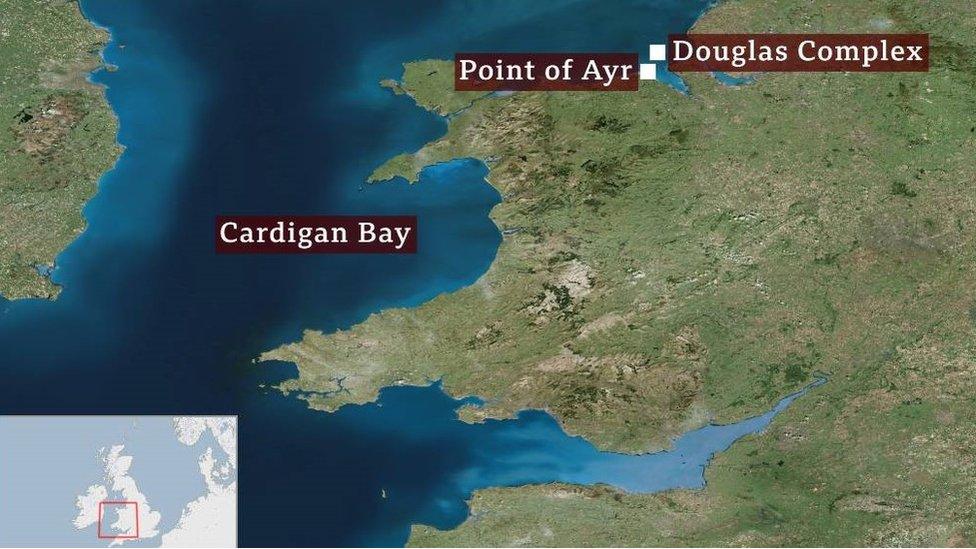
The Douglas Complex is made up of three linked platforms in the Irish Sea
The Douglas Fields, in the Irish Sea, 15 miles (24km) off Rhyl, is the only significant find so far off the Welsh coast.
It was discovered in the 1990s, with production starting in 1996 and gas also piped to the Point of Ayr, Flintshire.
Estimates range from 225m barrels of oil that are recoverable but Dr Alves said companies always give the best case scenario.
He believes companies will look for other uses for the site when this runs out in the next few decades.
What's happening at Cardigan Bay?
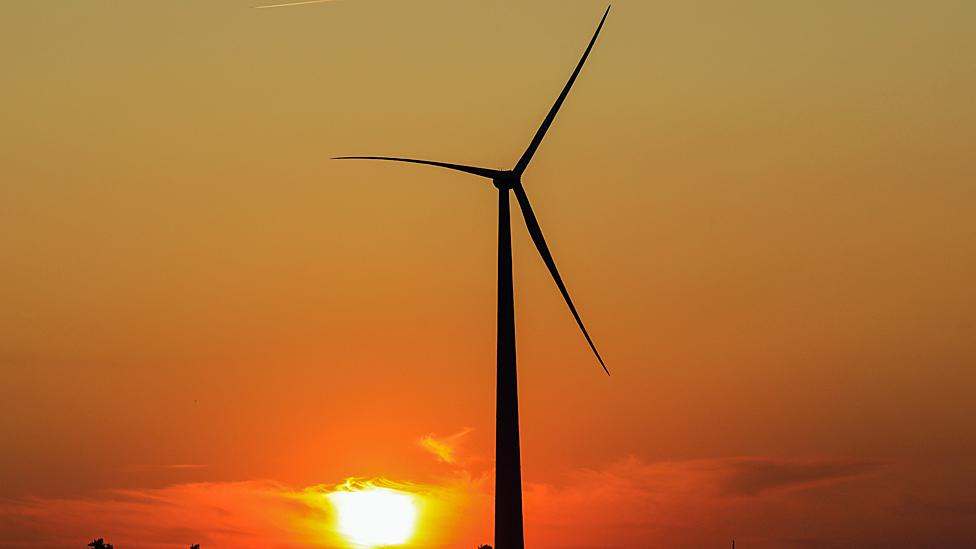
Wind turbines, like solar panels, create renewable energy that we can use as electricity
The possibility of there being oil and gas off Cardigan Bay was raised by Eni UK earlier this year when it applied to start exploring.
This idea was met with anger, with 7,000 people signing a petition saying a sea survey could kill young dolphins.
Campaigner Alan Cookson said locals were "united in their rage" in opposing the move.
However, Energy Secretary Greg Clark said any proposals that would have a "significant adverse" effect on wildlife would not have been granted.
Eni UK later suspended its application.
A spokesman said it takes responsibility for marine life seriously, but is committed carrying out seismic surveys in areas where it is possible.
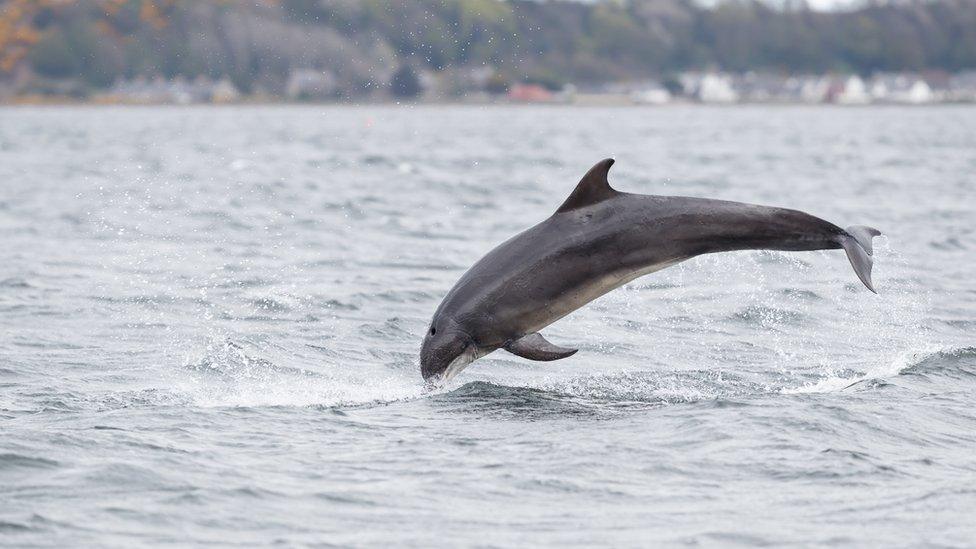
Cardigan Bay has the UK's largest resident population of dolphins
Dr Alves said "mind blowing" EU regulations meant any exploration would not disturb wildlife.
He believes Eni UK wanted to look at the seabed for a number of possible future uses.
Dr Alves said: "Nothing geologically (in terms of oil and gas) stands out in Cardigan Bay.
"In Ireland, they have been drilling off the south coast and the findings have been very poor, it wasn't economical to pursue it.
"The next step geologically from Ireland is to move towards Wales.
"Eni were probably interested in having a first look at this zone right up to the border between Irish and Welsh waters."
Even if a small amount of gas is there, it is likely more suitable for wind turbines or geothermal energy, he said.
What are oil companies doing?
Oil companies now want to explore as many areas globally as possible, Dr Alves said.
They are not just looking for oil but other potential energy sources, and balancing their work with its impact on the environment.
He gave the example of Greece and Cyprus - which have large possible sources of oil and gas off their coasts.
However, what needs to be weighed up is the effect on their "very important" tourism industries, environmental impacts and gains from oil and gas.
"Greece gets 30 million tourists, who arrive there, dispose of plastics on the coast, pollute and go away," Dr Alves said.
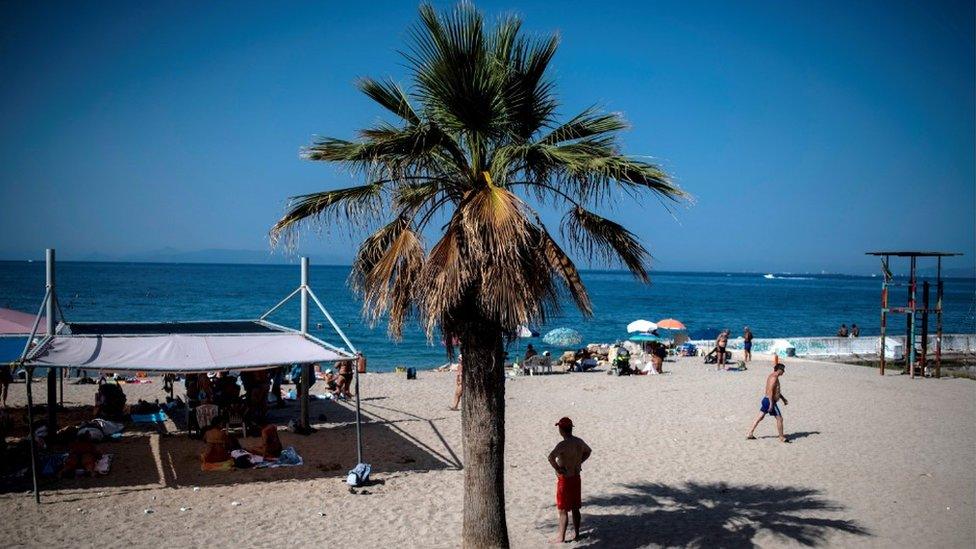
The oil industry is changing and major companies are balancing their impact on the environment with the search for different energy sources
It is part of the drive to become carbon neutral and reduce damage to the planet's atmosphere.
Exon Mobil, for example, has invested £3.1bn in reducing emissions since 2000 and gained 300 patents for new technology.
The other reason is that despite a drive to find new energy sources, we still consume record levels of oil, Dr Alves said.
In part, this is because it is being used to produce refined products for housing, clothing, laptops, mobile phones and cars.
So, offshore wind farms are not to replace oil consumption but to help keep up with demands for energy.
What could happen off Wales' coast?
Dr Alves said findings in searches for oil off the south Wales coast were "poor".
So perhaps wind turbines could be the best use for the country's waters.
Long term, where small amounts of gas or oil are present, Wales' waters could also be used for an altogether different purpose, he believes.
A focus in Europe has been reducing C02 emissions from heavy industry escaping into the atmosphere.
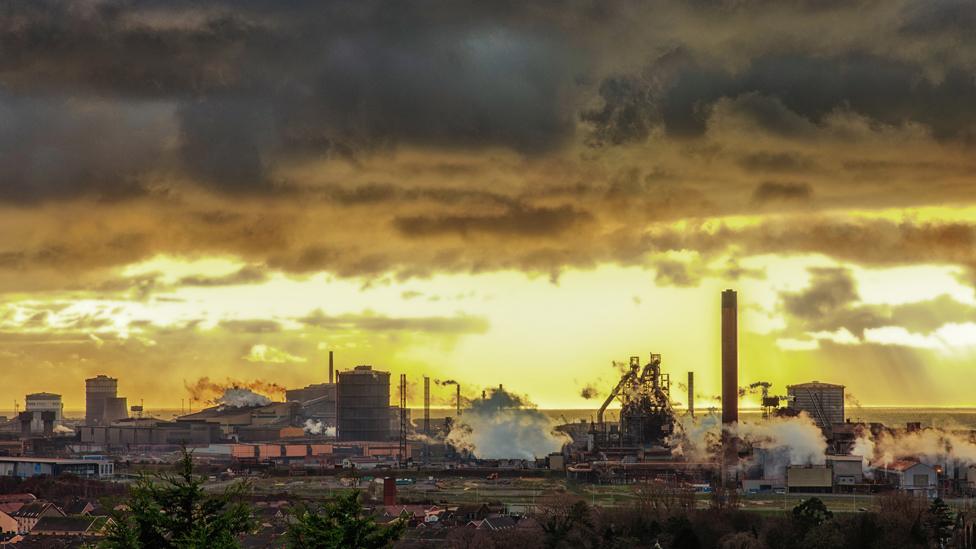
Could areas earmarked for oil exploration one day take emissions from industry, such as Port Talbot steelworks?
Technology being developed in the laboratory is looking at capturing this.
It could then be transported and "injected" in areas including the sea bed at depleted oil and gas fields, creating "a fizzy water" with no environmental damage.
While this is many years from fruition, Dr Alves said potentially, the Douglas Fields could be used for disposing of C02 emissions from the industrial north of England.
And even if there is a small amount of gas off Cardigan Bay, it could also be used for this purpose.
- Published8 November 2018
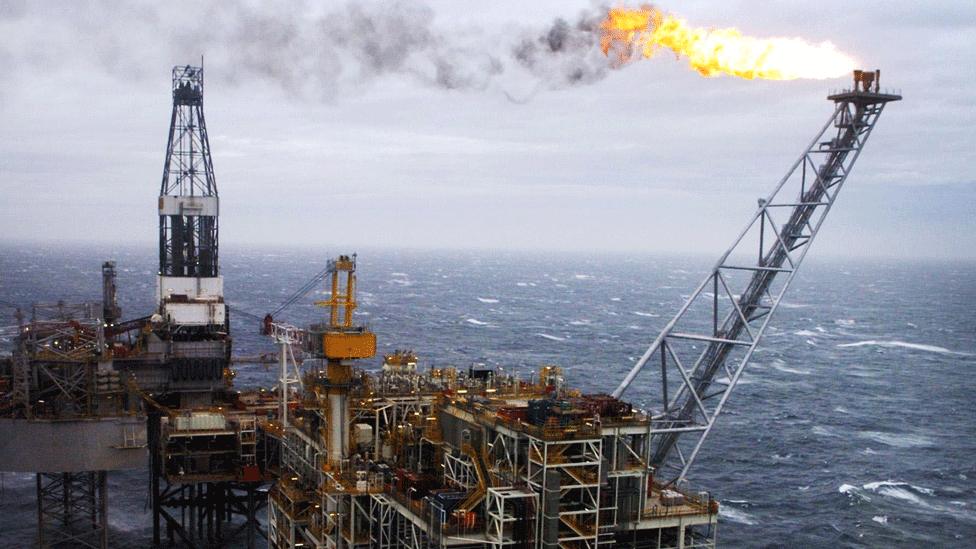
- Published17 September 2019

- Published2 April 2016

- Published31 May 2019
